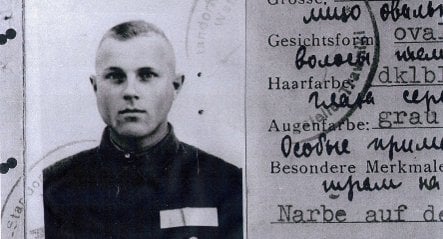The 89-year-old native of Ukraine, who was deported from the United States in May, “is fit to stand trial with the restriction that trial days do not last longer than two sessions of 90 minutes,” Margarethe Noetzel, a spokeswoman for the state prosecutor’s office said, citing a medical report.
The case will be transmitted to the court in July, Noetzel added, but it was unclear when any trial would start.
Demjanjuk, suspect number three in the Simon Wiesenthal Centre’s latest report on wanted Nazi war criminals behind two others thought to be dead, is wanted for complicity in the deaths of thousands of Jews during his time at the Sobibor death camp in Nazi-occupied Poland in 1943.
It is not the first time that the barrel-chested, bespectacled Demjanjuk has found himself in such a situation. He spent five years on death row in Israel before being acquitted in 1993 when the Jewish state overturned the verdict.
In that case, Demjanjuk was suspected of being “Ivan the Terrible,” a particularly brutal death camp guard who specialised in hacking at naked prisoners with a sword, but Israel established it had the wrong man.
Demjanjuk’s lawyer says his client says he was never there.
But courts in both Israel and the United States have previously stated he was a guard at Sobibor, accusations he had never previously challenged.
Prosecutors also have an SS identity card with a photograph of a young man said to be Demjanjuk and written transcripts of witness testimony placing him at the camp.
Demjanjuk is stateless, having been stripped of his US citizenship for lying about his past. Munich prosecutors say it falls on the German city to try him because he had been registered as living there after World War II.
Question marks over the health of the octogenarian — whose family say suffers from a variety of ailments including kidney disease, arthritis and cancer — dominated the months of legal wrangling that preceded his eventual deportation to Germany from his home in Cleveland, Ohio.
Lawyers for Demjanjuk argued that the pain he would suffer on the transatlantic flight to Germany amounted to a form of torture and that he would likely not survive the flight.
However, the United State Justice Department rejected the family’s arguments and released four secretly filmed surveillance videos showing him apparently getting out of a car without difficulty.
This contrasted sharply with the scene before his deportation when he was carried by federal agents in a wheelchair, moaning and sobbing, to be put on a plane to Germany. In this instance, he received an 11th hour reprieve.
The day after his arrival at the Stadelheim prison near the southern city of Munich, medical officials there declared him fit enough to remain in custody.
Deputy prison director Jochen Menzel said then that Demjanjuk was in strikingly good condition.
“He is not typical for his age… he is in better shape than usual for an 89-year-old,” he told rolling news channel N24.




 Please whitelist us to continue reading.
Please whitelist us to continue reading.
Member comments